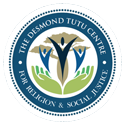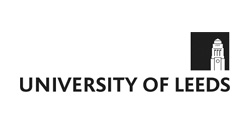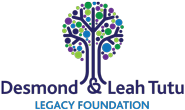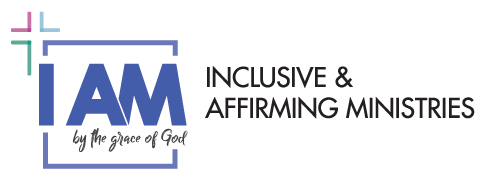About us
We explore the role of religion and spirituality in civil society in South Africa.
The Centre’s beginnings can be traced back to 2006, when the University kick-started its plans to establish the Desmond Tutu Chair. That chair, it was envisioned, would honour the legacy of Archbishop Emeritus Desmond Tutu – who had served as UWC Chancellor for almost 25 years – through teaching and research aspects of the Tutu legacy in theology and social transformation.
The vision of the Desmond Tutu Centre for Religion and Social Justice is to promote transdisciplinary research engagement that focuses on the critical intersections between Religion and Social Justice.
The vision and objectives of the Desmond Tutu Centre for Religion and Social Justice is to facilitate transdisciplinary research and community engagement on the critical intersections between religion and social justice through:
- Facilitating ongoing debate and critical discourse on the intersections of Religion and Social Justice through conferences, workshops, seminars and other collaborations with civil society
- Engendering activist collaboration between academia and civil society
- Providing developmental resources such as research and graduate fellowships for the transdisciplinary study of Religion and Social Justice
- Publishing and disseminating the findings of research, through conventional academic means, such as books and journal articles, as well as public scholarship such as opinion editorials, podcasts and other public and social formats.

Research Hubs
Religion, Gender, and Sexuality
Through this research hub subsection, the Centre seeks to foster critical research and civic engagement, which actively challenge the intersecting and systemic powers that produce and maintain the marginalisation and oppression of those who identify as woman and/or queer. Projects within this thematic focus draw on the variety of resources available within feminist, queer and masculinity studies to develop knowledge and just action in the complex and diverse areas where religion, gender, and sexuality intersect. These include, but are not limited to: sexual and reproductive health rights, violence against women, sexuality, queer and trans identity and citizenship, women and leadership, and religious and cultural laws and tradition.
Religion, Ecology, and Economy
This research hub subsection foregrounds the connections between anthropocentric and androcentric discourses, as well as the dynamism between economic exploitation and other forms of oppression and marginalisation. It explores how religion, environment, and economy intersect and connect with culture, politics, community, heritage, and indigenous knowledge systems. This thematic focus area interrogates religion’s entanglements within the institutionalisation of economic oppression and examines the resources available within religion to destabilise prevailing imbalances of economic power. Both environmental and economic justice are linked to moral principles which support the possibilities for people to live dignified material lives rooted in creativity and productivity.
Religion and Media
Given the rapidly increasing presence, power, and persuasion of digital and electronic media on the African continent and in the global economy, the study of religion and the media is a flourishing field of intellectual inquiry. A focus on religion and media highlights how representations of religious identity, formations of community, and questions of authority are constructed and contested in mediated and mediatised spaces and the consequences of these multifaceted arrangements for offline experiences and environments. Furthermore, media spaces may contest as well as re-inscribe traditional discourses, ideologies and practices of power and privilege, inclusion and exclusion while offering novel spaces for these productions and circulations of identity, authority, and community. With this research hub subsection, the Centre advances approaches, both theoretical and methodological, that foreground the multiple and complex relationships between religions and media.
Religion, Race, Politics, and African Religions
In light of the role of religion in general, and Christianity in particular, in both the colonial and apartheid projects, the Centre is dedicated to exploring the possibilities for social justice through scholarship that focuses on decolonial explorations of religion. This is demonstrated through our commitment to providing teaching and research that prioritises giving voice and visibility to religious traditions, and aspects of religious experiences that have hitherto been marginalised in the academy. Seemingly neglected areas of exploration in post-apartheid South Africa such as Black Theology and religious diversity are also explored. In addition, the Centre encourages research, conversations and partnerships that challenge the taken for granted nature of concepts and configurations such as democracy, equality, justice, reconciliation, and human rights in the social sciences and society.
Religion, Education, and Epistemology
The decolonial turn in global higher education, has prompted a paradigmatic shift in the study of religion, that scholarship from South Africa is poised to lead. The shifts are both epistemological and pedagogical. This research hub subsection explores indigenous/localised as well as subjugated/marginalised knowledge and meaning making in the study of religion. What knowledge is being produced, how is such knowledge created and engaged with, and who is producing such knowledge are key questions that are asked. Furthermore, critically reflecting on pedagogical praxis is a key task in this context, hence transforming the content and the processes required for more decolonial, feminist and queer pedagogies, forms the basis of this focus area. As such, the postgraduate training workshops and supervision offered within the Centre are considered important steps towards “educational justice.” The postgraduate training programme is a project in the decolonisation and democratisation of education. Through structured and focused thematic workshops the process of academic writing is demystified and students are given the necessary support they need to navigate the research process.
Staff
SARChI Research Chair in Religion and Social Justice
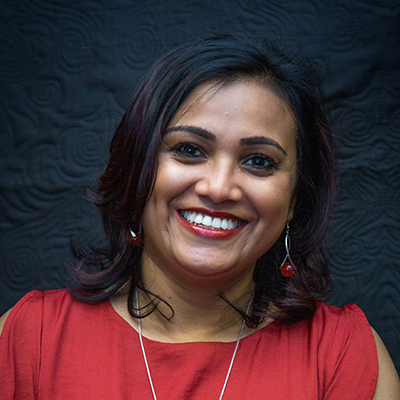
Professor Sarojini Nadar
Director
Director, Prof Sarojini Nadar holds the Desmond Tutu SARChI Research Chair in Religion and Social Justice. She obtained her PhD in 2003 from the erstwhile University of Natal (now UKZN), where she also held the position of coordinator of the International Network in Advanced Theological Education (INATE) from 2002 to 2005. The network was based in eight countries and spanned five continents.
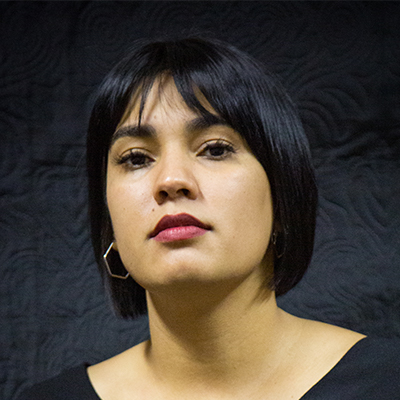
Associate Professor Lee Scharnick-Udemans
Senior Researcher
Senior Researcher, Associate Professor Lee Scharnick-Udemans’ current research focuses on religious diversity and pluralism. It is important for both its intellectual contribution to the interdisciplinary and intersectional study of religion and for its social significance for understanding and enacting equality in a vastly inequitable world.
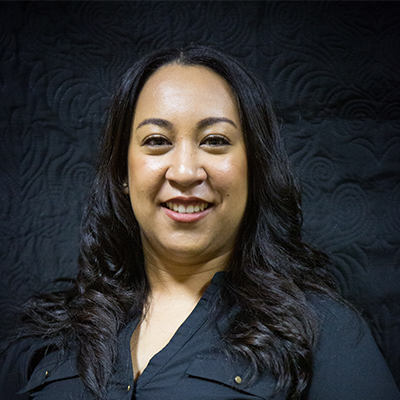
Dr Megan Robertson
Senior Researcher
Senior Researcher, Dr Megan Robertson obtained her PhD at the University of the Western Cape under the Desmond Tutu SARChI Research Chair in Religion and Social Justice, researching in the area of queer sexuality and institutional church culture. She is driven by a commitment to social justice and has a keen interest in developing method and pedagogical practice in that area.
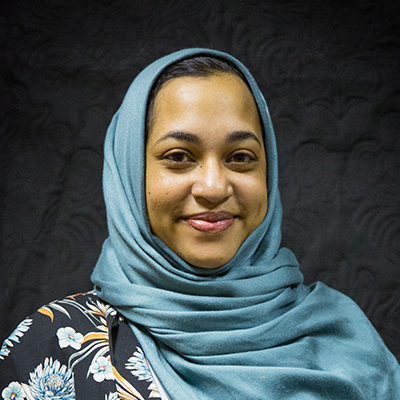
Ms Ferial Marlie
Administrator
Administrator, Ms Ferial Marlie has been with the Centre since late 2018. Apart from providing logistical and administrative support, she also has skills in online and print design, creating and updating social media pages, managing publication processes associated with academic journals, as well as a solid background in database administration, which makes her skills invaluable for postgraduate student administration. Ferial is a Master’s candidate in the Women’s and Gender Studies programme at the University of the Western Cape. Her research is supported by the Desmond Tutu SARChI Chair in Religion and Social Justice, where she works within the thematic focus on gender, religion, and sexuality. Her research interests are on women’s agency in the context of Islamic marriage, and it is framed by critical feminist perspectives within Islam.
Extraordinary Professors and Research Fellows
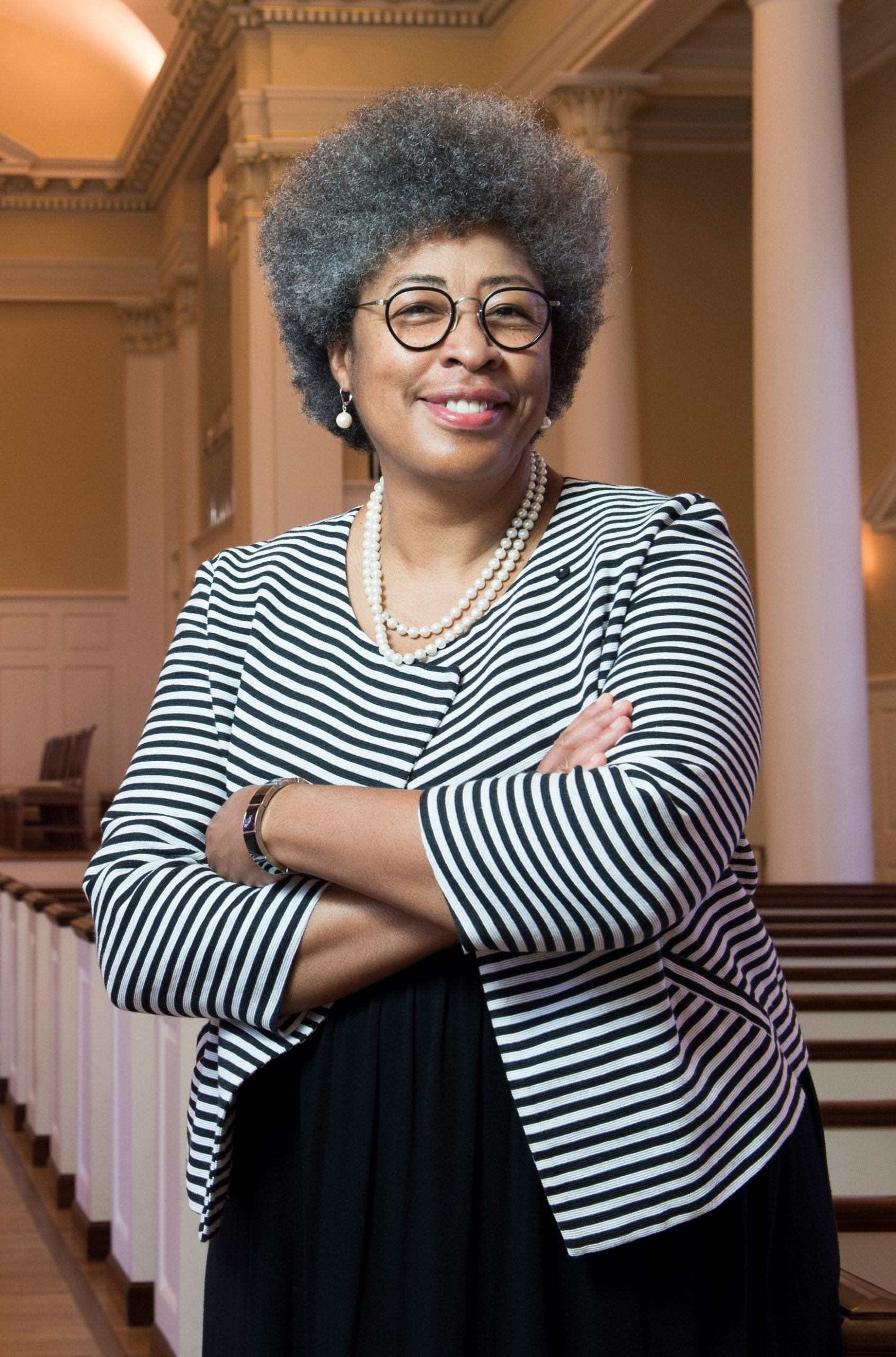
Professor Evelyn Parker
Extraordinary Professor
Evelyn L. Parker is the Susanna Wesley Centennial Professor of Practical Theology at Perkins School of Theology, Southern Methodist University and is a J. William Fulbright Scholar, 2019 -2020, Cape Town, South Africa focusing on the role of religious leaders in preventing and intervening in teen dating violence.
Parker received the Bachelor of Science from Lambuth College, Tennessee, and the Master of Science from Prairie View A&M University. Upon receiving her MSc she served as a research scientist in the department of Human Biological Chemistry and Genetics at the University of Texas Medical Branch at Galveston. She attended the two-week Christian Educators Seminar at Perkins School of Theology from 1986 until 1989. The seminars were the impetus for further study in theological education and the transition from a vocation in biological research to one in educational ministry. Parker received the Master of Religious Education and earned her PhD from the Joint Program of Garrett-Evangelical Theological Seminary/Northwestern University in Religious and Theological Studies, with an interdisciplinary emphasis in Christian Education, Womanist approaches to religion and society, and education and public policy. Parker is the author of Between Sisters: Emancipatory Hope Out of Tragic Relationships, (Cascade Books, 2017) and has also published several chapters and journal articles on adolescent spirituality, including “Divine Fortitude : A Reflection on God’s goodness in black female child soldiers,” in Susan Willhauck, ed., Female Child Soldiering: Gender Violence and Feminist Theologies. Switzerland: Palgrave Macmillan, Cham, 2019.
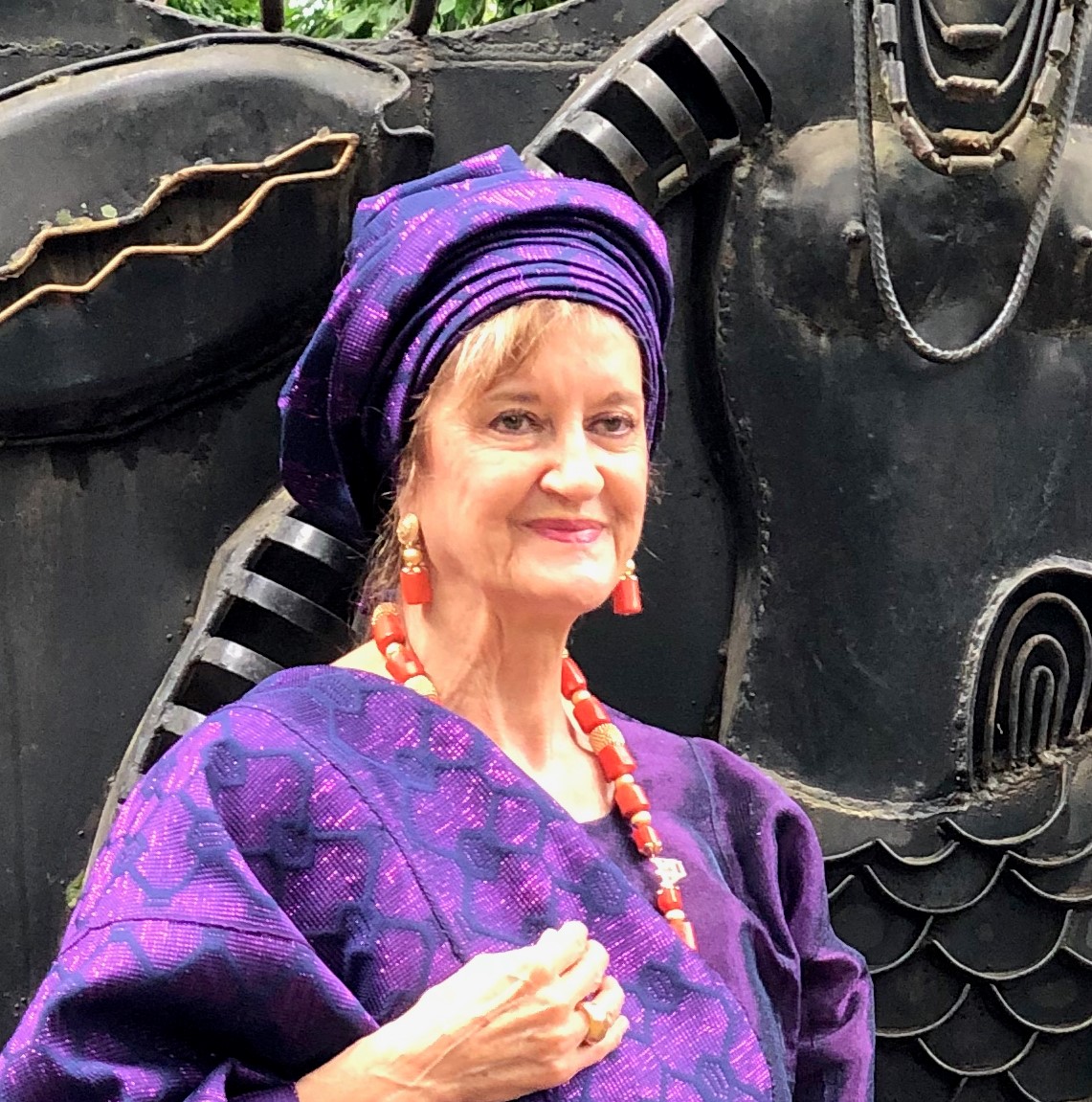
Professor Rosalind Hackett
Extraordinary Professor
Rosalind I.J. Hackett is Chancellor’s Professor, Professor of Religious Studies, Adjunct Professor in Anthropology, and former Distinguished Professor in the Humanities, at the University of Tennessee, USA. She studied in the UK (Leeds, London, Aberdeen) and went on to teach and conduct field research in Nigeria. She has held fellowships at Harvard University and the universities of Notre Dame, Cape Town, and Groningen.
She publishes in the areas of indigenous religions, new religious movements, gender, art, human rights, pluralism, media, and conflict in relation to religion in Africa. She is currently conducting research on sound and religion. Her most recent (co-edited) books are New Media and Religious Transformations in Africa (2015) and The Anthropology of Global Pentecostalism and Evangelicalism (2015). She is Past President and Honorary Life Member of the International Association for the History of Religions (IAHR) and was Vice President of the International Council on Philosophy and Human Sciences (CIPSH). Hackett also serves on the Board of Directors of the African Consortium on Law and Religion Studies (ACLARS). In 2019, Professor Hackett received an Honorary Chieftaincy title, Yeye Meye (Mother Who Knows Our Ways) from the Elerinmo of Erinmoland, HRM Oba (Dr) Michael Odunayo Ajayi, Osun State, Nigeria.
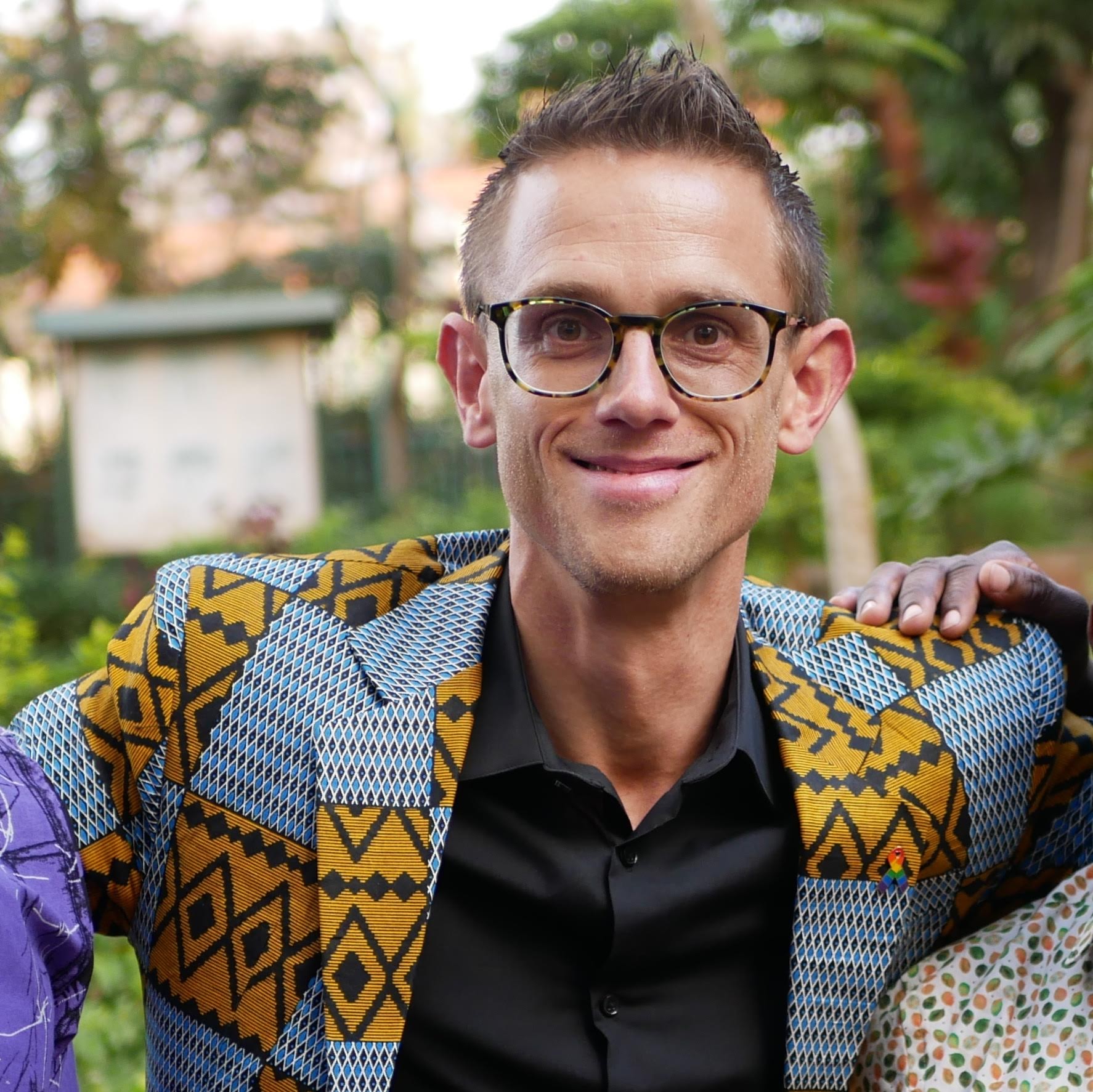
Professor Adriaan van Klinken
Extraordinary Professor
Adriaan van Klinken currently resides in Leeds, UK but is originally from the Netherlands, where he studied Theology and Religious Studies at Utrecht University and completed his Masters in 2006, and PhD in 2011. During his Masters, he spent three months as a visiting student at the University of KwaZulu-Natal and ended up writing his thesis there, so his connection to South Africa began at an early stage of his academic journey, and has developed through many return visits later.
After completing his PhD, he moved to the United Kingdom, where he was first a postdoctoral research fellow at SOAS University of London, and in 2013 was appointed at the University of Leeds. At Leeds, his career began as a Lecturer in African Christianity, later becoming Associate Professor in Religion and African Studies, and since 2020 full professor. He also serves as director of the Leeds University Centre for African Studies, and of the Centre for Religion and Public Life.
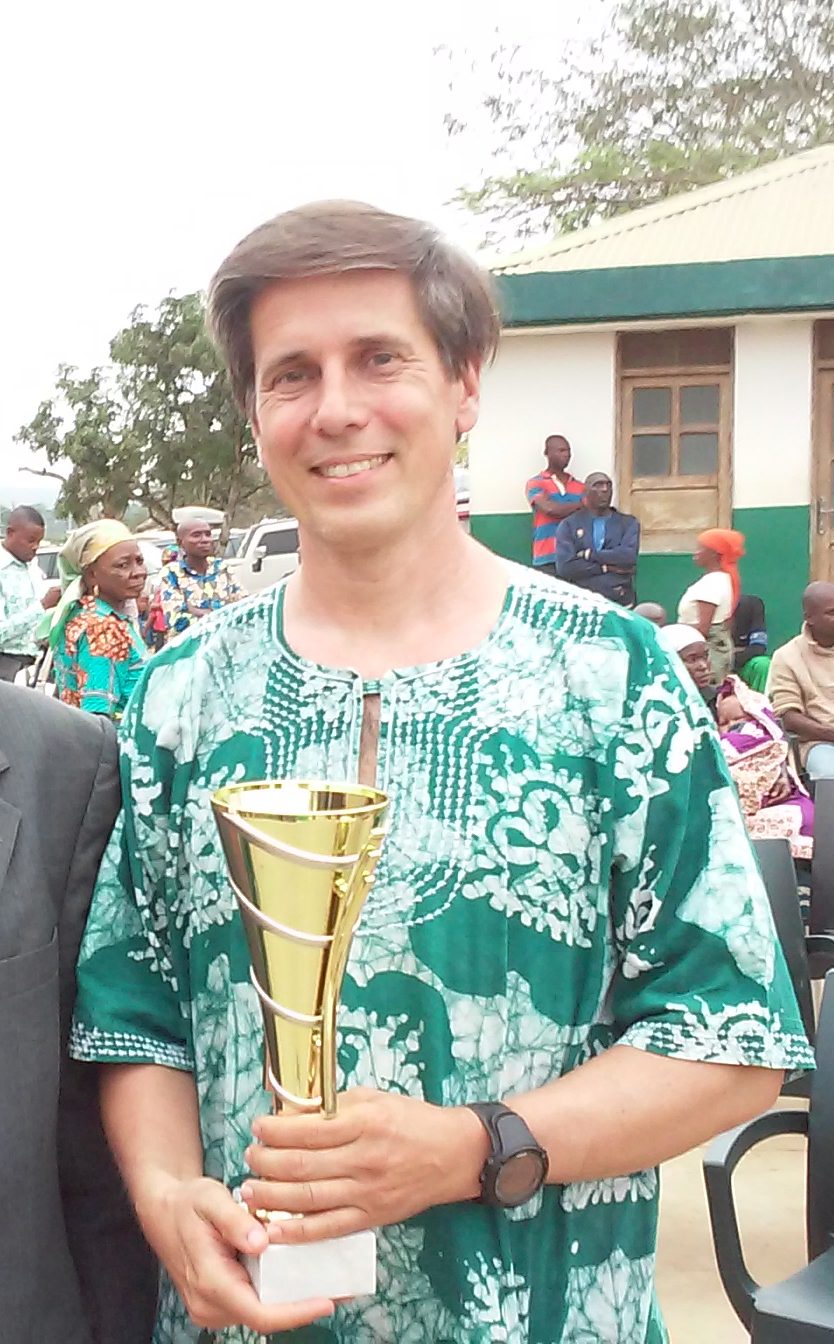
Professor Mika Vähäkangas
Extraordinary Professor
Mika Vähäkangas was born in Finland. He holds a doctoral degree in Theology and Masters degrees in both Theology and African Studies, from Helsinki University, Finland. He was also a student at Pontificial Gregorian University, Rome, and Makumira, Tanzania, where he later served as a lecturer in systematic theology. He has also taught Systematic Theology and Mission Studies at Helsinki University and he is currently Professor in Mission Studies and Ecumenics at Lund University (Sweden) since 2009.
Vähäkangas served the International Association for Mission Studies as vice president between 2008-2012 and as president from 2012-2016. He is an adviser to the World Council of Churches (WCC) Commission for World Mission and Evangelism (CWME) and consultant to the Lutheran World Federation.
In terms of research, he began by studying the relationship between Ujamaa (Tanzanian socialism) and Lutheran theology for his MTh and continued with a ThD analysing Tanzanian-born Catholic professor Charles Nyamiti’s way of connecting Catholic scholastic traditions with African cultures. These were textual studies. While teaching in Tanzania, he was gradually attracted by empirical studies and today he attempts to balance between textual analyses, empirical research and constructive theology. He has started applying what he has learned in Africa on European religious realities.
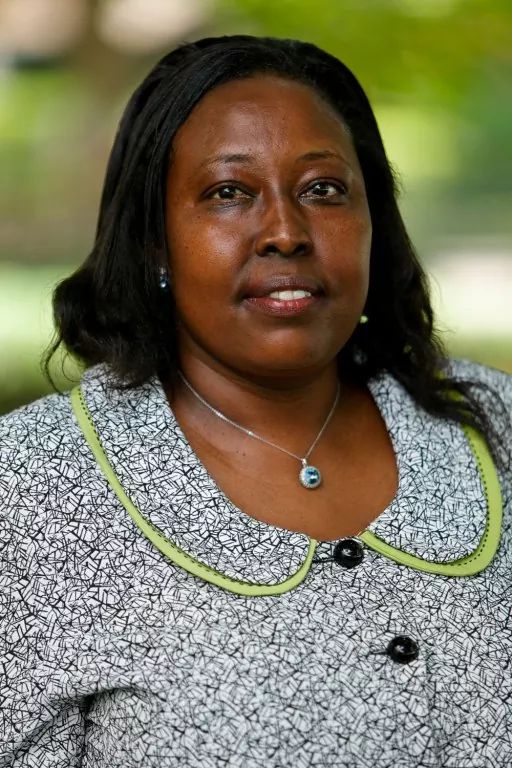
Professor Damaris Seleina Parsitau
Extraordinary Professor
Prof Damaris Seleina Parsitau is formerly the Director of the Institute of Women Gender and Development Studies (IWGDS) there. She is also a fellow and alumni of the Brookings Institutions, Centre for Universal Education, Washington DC, USA, formerly, Research Associate at Harvard University’s Women Studies in Religion Programme WSRP, Harvard Divinity School, a fellow of University of Cambridge, UK, and University of Edinburgh, Scotland.
She holds a PhD from Kenyatta University. Prof Parsitau is also the President of the African Association for the Study of Religion in Africa and Its Diaspora (AASR), a feminist and gender scholar with years of experience working in community development. Her doctoral work focused on African Pentecostalism and its civic and gendered engagement. Her more recent research focuses on the intersections between religion, gender and sexuality in Africa with a special focus on women’s bodies, sexual and gender-based violence, masculinities and patriarchal imaginaries in African Pentecostal Churches. She considers this to be a core emerging research focus for her within a contested social, political and religious space. Prof Parsitau is widely published both in regional and international journals and considers herself a multi-disciplinary scholar.
Overall, her research aligns with the strategic goals within the Desmond Tutu Centre for Religion and Social Justice’s thematic focus area of Religion and Gender.
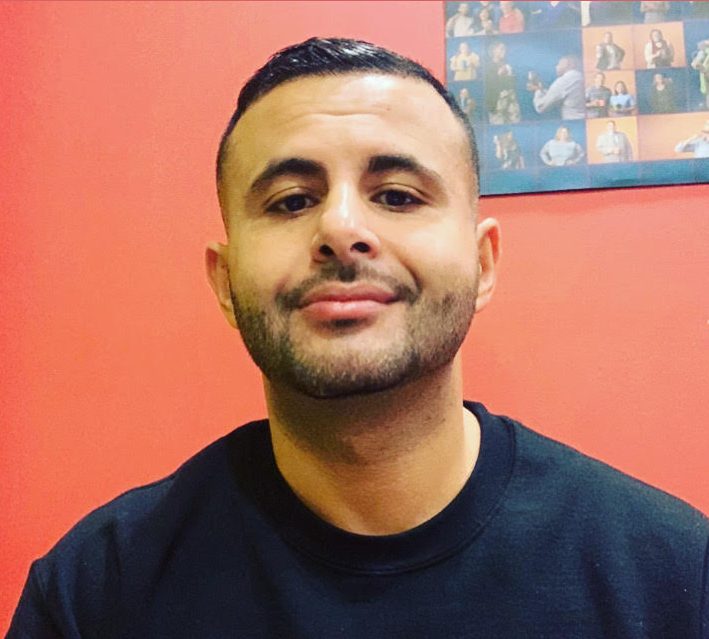
Professor Khaled Beydoun
Extraordinary Professor
Prof Khaled Beydoun is currently the Scholar-in-Residence at Berkman Klein Center for Internet & Society, Harvard University. He received his M.Ed magna cum laude at Harvard University and completed his Juris Doctor at the University of California, Los Angeles. His area of specialization is Law, Religion, and Media and his research focuses on Islamophobia and issues related to the lived experiences of Muslims.
Prof Beydoun is ranked among the top 5% most downloaded law scholars on the Social Science Research Network. He is also a world renowned public intellectual and social justice activist.
Overall, his research aligns with the strategic goals within the Desmond Tutu Centre for Religion and Social Justice’s thematic focus area of Religion and Politics as well as Religion and Economic Justice.
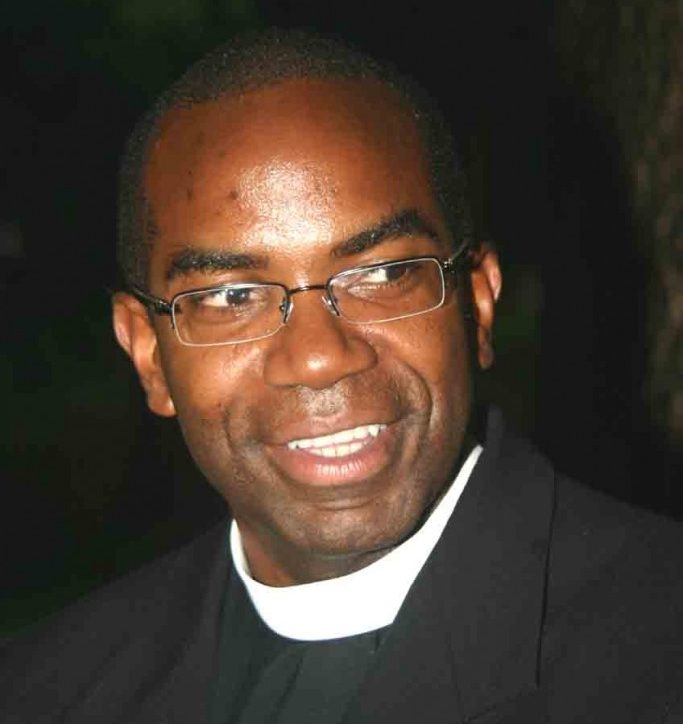
Rev Dr Michael Battle
Extraordinary Professor
Rev Dr Michael Battle is currently the Herbert Thompson Professorial Chair of Church and Society, the Director of the Desmond Tutu Center, General Theological Seminary, and President and CEO, Peace Battle Institute, in Raleigh, North Carolina. He holds a PhD from Duke University, USA. Battle’s academic experience includes service as interim dean of Students and Community Life at Episcopal Divinity School, dean for academic affairs, vice president and associate professor of theology at Virginia Theology Seminary; as associate professor of spirituality and black church studies, at Duke University’s Divinity School; and as assistant professor of spiritual and moral theology in the School of Theology at the University of the South.
Battle has published eleven books, including his latest: Desmond Tutu: A Spiritual Biography of South Africa’s Confessor.
Overall, his research aligns with the strategic goals within the Desmond Tutu Centre for Religion and Social Justice’s thematic focus area of Religion and Politics, and Reconciliation.
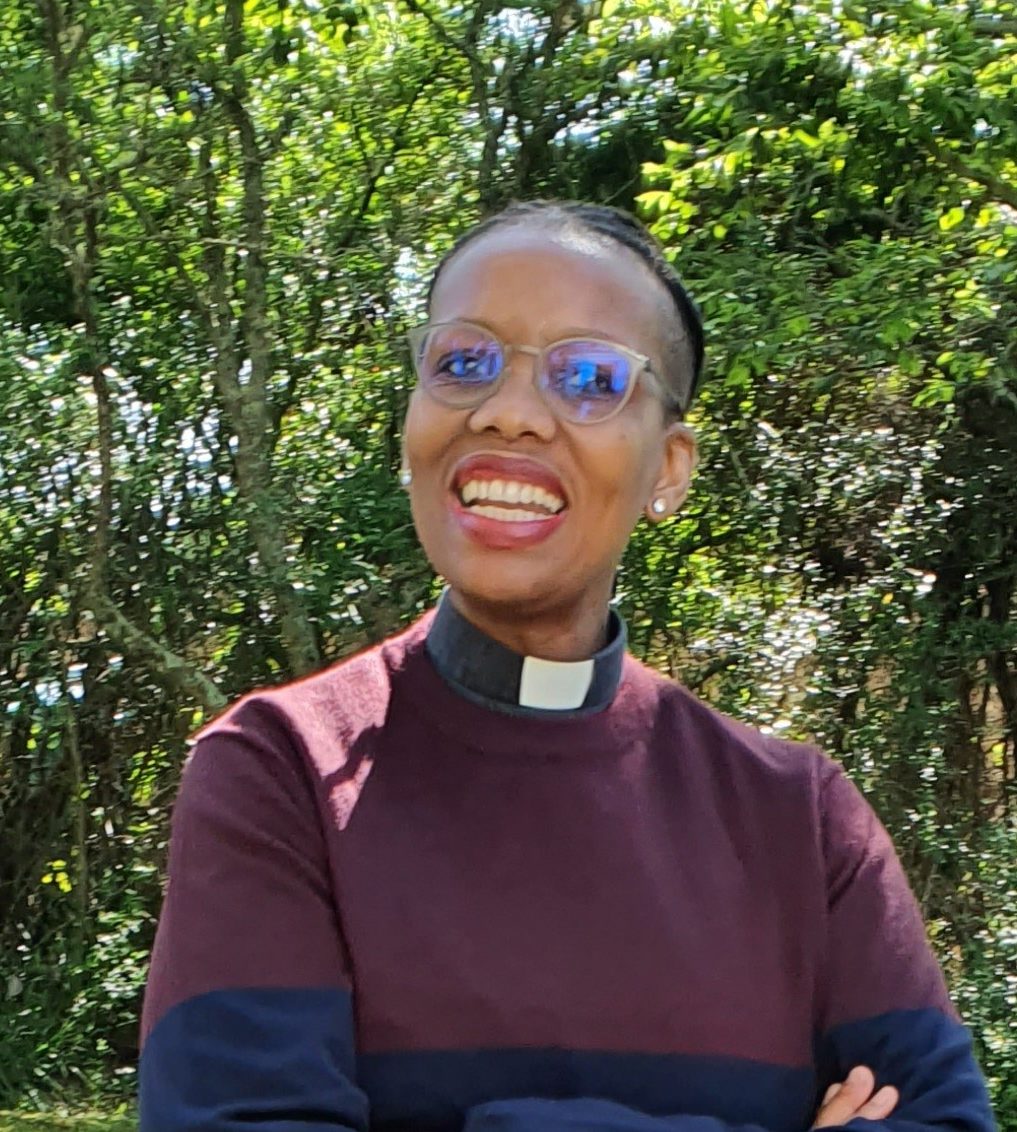
Right Rev Dr Vicentia Kgabe
Research Fellow
Right Rev Dr Kgabe is currently the Rector and Principal at the College of Transfiguration in Grahamstown and Bishop of the Diocese of Lesotho, Anglican Church of Southern Africa. She holds a PhD from the University of Pretoria.
Her doctoral work focused on the abuse of alcohol by Anglican clergy and the challenges it presented to pastoral care. Kgabe has published both in regional and international publications.
Overall, her research aligns with the strategic goals within the Desmond Tutu Centre for Religion and Social Justice’s thematic focus area of Religion and Gender.
Research and Journal Assistants
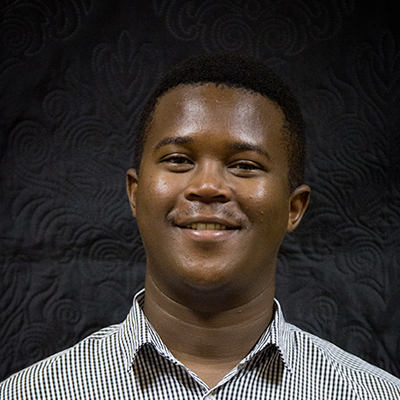
Rhine Phillip Tsobotsi Koloti
Journal Assistant
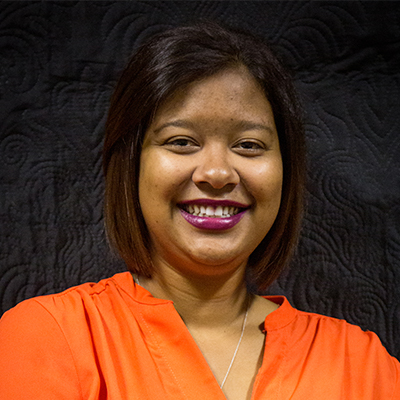
Ashleigh Petersen-Cloete
Journal Assistant
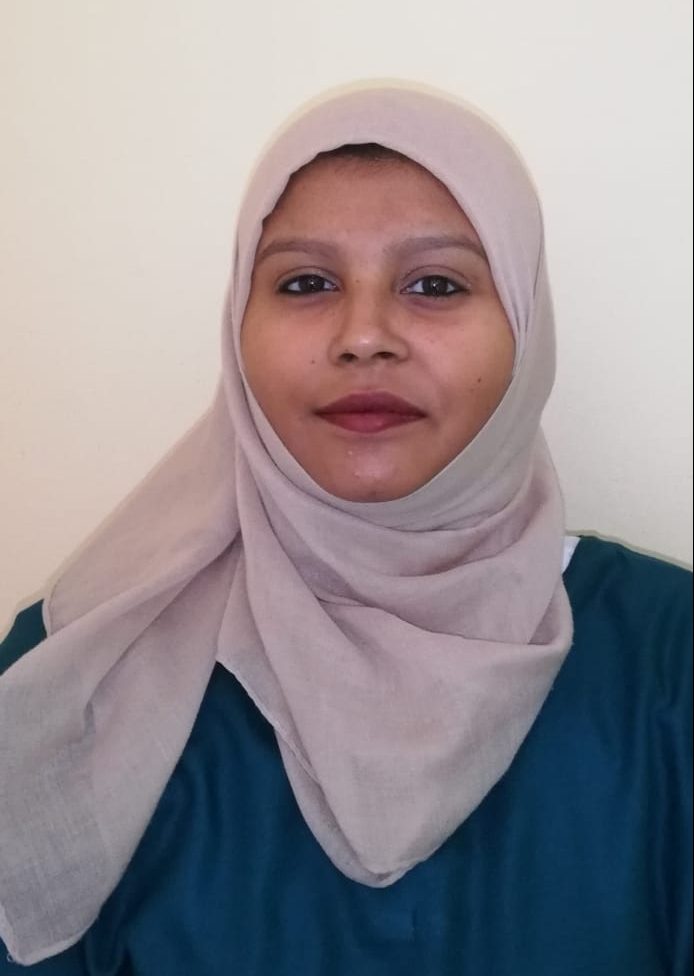
Sakeenah Dramat
Research Assistant
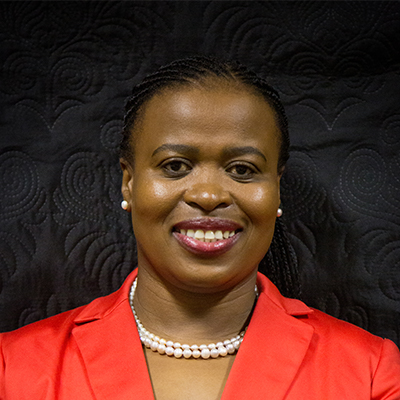
Nobesuthu Tom
Research Assistant
Student Affiliates
Phathisani Sibanda
Masters candidate
Thozama Mabusela
Masters candidate
Rifqah Tifloen
Masters candidate
Reshaan Dollie
Masters Candidate
Tswelopele Makoe
Masters Candidate
Pam Delport
PhD candidate
Claudene Sebolai
PhD candidate
Adera Godfrey Owino
PhD candidate
Pralini Naidoo
PhD candidate
Ishaya Anthony
PhD candidate
Ashleigh Petersen-Cloete
PhD candidate
Winnie Varghese
PhD candidate
Rhine 'Toby' Koloti
PhD candidate
Sakeenah Dramat
PhD candidate
Leona Morgan
PhD candidate
Nobesuthu Tom
PhD candidate
Partners
The Desmond Tutu Centre for Religion and Social Justice is thankful to its donors and partners for their ongoing support in enabling the work of the Centre.
